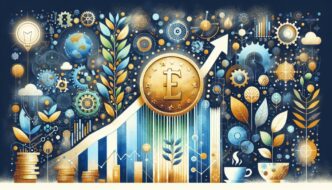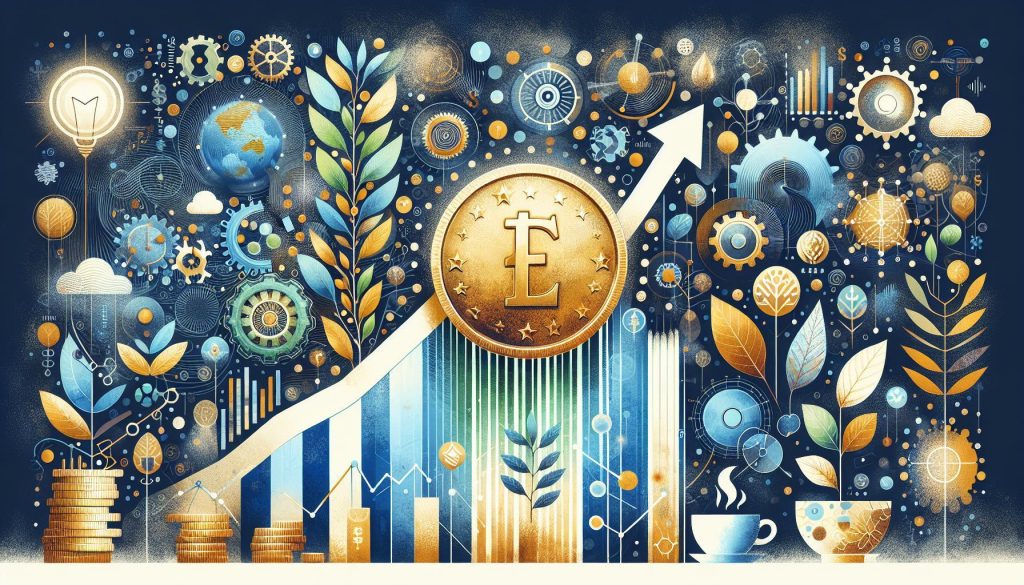Inflation is a critical economic indicator that affects not only the purchasing power of consumers but also the investment landscape. Recently, France’s inflation rate accelerated to a five-month high, raising significant concerns and questions among economists, consumers, and investors alike. In January, provisional data from the statistical office INSEE revealed that consumer prices registered an annual increase of 1.4 percent, up from December’s 1.3 percent rise. This article delves into the implications of this inflation surge and what it means for consumers and investors.
Understanding Recent Inflation Trends in France
In order to grasp the implications of rising inflation, it’s crucial to understand the underlying factors contributing to this increase. The recent acceleration in France’s inflation is largely associated with two key areas: energy prices and manufactured products. As global energy costs continue to fluctuate and supply chain inconsistencies persist, the effects on consumer prices become more pronounced.
Key Influencers Behind the Inflation Spike
- Energy Prices: A significant component of inflation is the cost of energy, which has seen an escalation due to geopolitical tensions and recovering demand post-pandemic.
- Manufactured Products: Disruption in supply chains has led to increased production costs for manufactured goods, ultimately resulting in higher prices for consumers.
Comparative Data on Consumer Prices
| Month | Inflation Rate (%) |
|---|---|
| December 2022 | 1.3% |
| January 2023 | 1.4% |
Impact on Consumers
As inflation rises, consumers are facing an increase in the cost of living. This situation can lead to reduced purchasing power and adjusted spending habits. Here’s how this inflation spike affects everyday life:
- Higher Costs for Essentials: Everyday items such as groceries, transportation, and energy have seen price increases, forcing consumers to rethink their budgets.
- Consumer Confidence: Fluctuating inflation can lead to uncertainty among consumers, potentially reducing their willingness to spend due to worries about future price increases.
Benefits of Staying Informed
For consumers, understanding inflation is vital for effective financial planning. By being aware of the economic landscape, individuals can make informed decisions about:
- Budgeting: Adjusting budgets to account for increased costs can help mitigate the financial strain.
- Purchasing: Timing purchases and buying in bulk may save money over time, especially for essential items.
The Investor Perspective
For investors, rising inflation can present both challenges and opportunities. Understanding the implications of France’s increased inflation rate can inform investment strategies:
Asset Class Performance
- Equities: Companies in sectors that can pass on costs to consumers, such as consumer staples, may perform better in inflationary environments.
- Bonds: Rising inflation often leads to increased interest rates, which can negatively impact bond prices. Investors should consider shorter-duration bonds or inflation-protected securities.
- Commodities: Historically, commodities tend to perform well during inflationary periods, making them a potential hedge.
Strategies for Investors
- Diversification: It’s crucial to diversify across asset classes that react differently to inflation.
- Inflation-Linked Investments: Consider investments such as Treasury Inflation-Protected Securities (TIPS) or real estate.
Expert Opinions and Predictions
According to renowned economists, the rise in inflation may continue in the short term due to ongoing pressures in global supply chains and potential geopolitical developments. Experts suggest monitoring the European Central Bank’s (ECB) response, as it plays a significant role in shaping inflation outcomes.
“Inflation is a complex phenomenon, but consumers and investors must remain vigilant. The ECB’s monetary policies will significantly influence the pace of inflation in the coming months.” – Dr. Jean Dupont, Economic Analyst.
What to Watch For
- Policy Changes by the ECB: Any shifts in monetary policy may directly impact inflation rates.
- Global Events: Keep an eye on global events that can influence energy prices and supply chains.
Conclusion
France’s inflation reaching a five-month high reflects broader economic trends that are likely to impact both consumers and investors in the near future. Consumers should adjust their budgets and prioritize essential spending as prices rise, while investors must consider their strategies in light of increased inflation. By staying informed and proactive, individuals can navigate these economic challenges effectively.
rising inflation is a wake-up call for all stakeholders in the economy. Awareness and adaptation are key, and as we progress through this uncertain economic landscape, being proactive will benefit consumers and investors alike.




